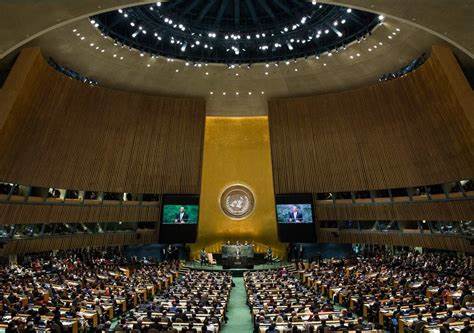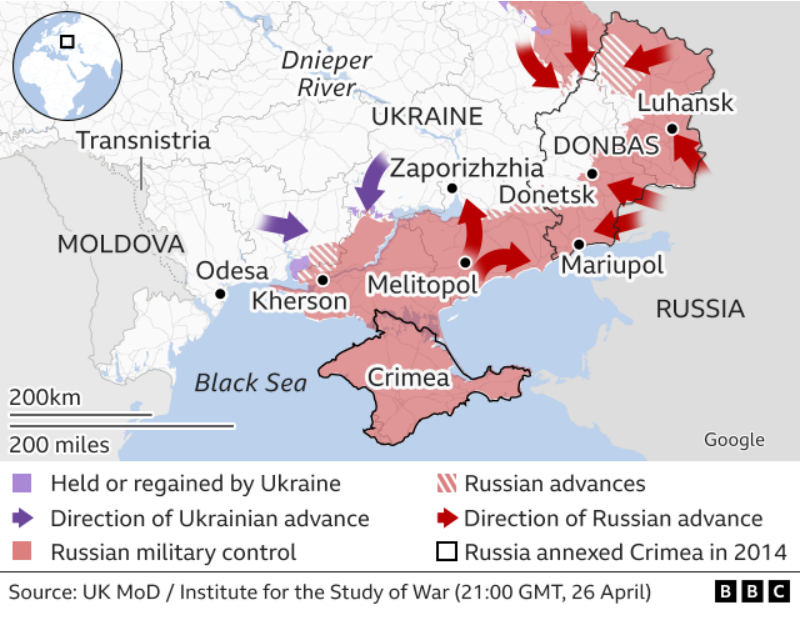The world troubles may be partially related to the pandemic
April 29th 2022

Deputy Editor – John Donnelly

As the western world is facing a more and more threatening stance from the Russian Federation under Vladimir Putin, questions are beginning to arise as to how the war in Ukraine, which had been smouldering since 2014, has turned into the most destructive conflict in Europe since 1945. One answer recently put forward has its roots in the level of isolation in which Vladimir Putin has subjected himself to as a result of the COVID-19 pandemic. The world has witnessed the extremely long table employed during meetings with the French President Emmanuel Macron and it has been suggested that the Russian leader has mostly closeted himself away from advisers in recent times. This could of course be partially for security concerns as there is little doubt that President Putin operates in ways seems to go down especially well with his deeply conditioned audience, and in any event those who initially took to the streets in Russia to protest are safely behind bars with others suitably dissuaded from even mentioning the word ‘war’. Most recently Putin has been engaged in not so veiled threats of swift action engaging any outside interference to his forces in Ukraine. He suggests Russian response to threats will be “lightning fast and deadly”, possibly indicating the use of his hypersonic capabilities or the use of nuclear weapons.
Given that the first meeting of the United Nations in January 1946, convened by 51 nations at Westminster Central Hall, adopted its first resolution calling for the peaceful uses of atomic energy and the elimination of atomic and other weapons of mass destruction, it is clearly apparent that the world has failed to live up to the ideals fought for during the Second World War. Senator Vandenberg, an American delegate, voiced his disappointment at the resolution and said:
“… not only must the United States speak as plainly on all occasions as Russia does but must also assume moral leadership.”
Soon after, Secretary of State Byrnes, apparently alluding to problems with the Russians in Iran, Manchuria and Eastern Europe, suggested the use of force:
“if force or the threat of force is used contrary to the purposes and principles of the UN… If we are to be a great power we must act like a great power, not only to ensure our own security but in order to preserve the peace of the world.”
 Clearly flushed with success after President Franklin D. Roosevelt had succeeded in his great endeavour mustering in his words the ‘Arsenal of Democracy’, the United States, after World War II, were getting their feet under the table of world leadership displacing the now greatly weakened British Empire.
Clearly flushed with success after President Franklin D. Roosevelt had succeeded in his great endeavour mustering in his words the ‘Arsenal of Democracy’, the United States, after World War II, were getting their feet under the table of world leadership displacing the now greatly weakened British Empire.
With Vladimir Putin’s war set to destroy much of Ukraine’s infrastructure, not to mention the lives of its citizens and combatants on both sides, we can only hope for an early ceasefire confident in the knowledge that Russia loses even if it wins militarily. History tells us that even a Ukraine divided between east and west will inevitably conclude successfully in economic terms for the western sector. Just as with the German experience after the Berlin Wall was erected, those in the east are more than likely to view their western neighbours as having a party whilst they, under the dictatorial, oppressive yoke of Russian occupation are effectively prisoners of the state. Those in the east may expect to be watched over by a Communist-style security service where reporting neighbours or even family members may gain some elevated status or state favours, whilst any dissent would inevitably invite hostility, imprisonment or disappearance. Whilst Putin’s regime calls them filtration camps, the incarceration facilities, in common with the facilities set up by the Chinese for the Uyghurs, are effectively just concentration camps not so dissimilar to those utilised by the Nazi regime during World War II.
In summary, whilst nobody may be able to look inside Putin’s mind, it is a reasonable assumption that his actions arise out of insecurity and are based upon his past success in steadily increasing his power and influence over his people and, where possible, neighbouring states. He certainly seems to have seen the distinct possibility of the freedoms and growing prosperity of Ukraine as a threat. His mind likely turned to losing control of Belarus, Georgia and other socalled independent republics of the former Soviet Union. So, in his mind the threat is freedom from Russian influence which he likely views his duty to prevent. It is highly likely that his COVID-19 isolation and the sycophantic flow of experts upon which he has been reliant has led to his initial miscalculation. He was apparently reassured that the effective replacement of the Kyiv government could be achieved within hours of his invasion with overwhelming numerical superiority. A supreme leader who has not been subjected to challenge will no doubt eventually believe his own infallibility, but when he has a vast array of destructive capability and is isolated from objective advice, he can be much more dangerous than a leader who knows the limitations of his own capabilities.
This article first appeared in the Sark Newspaper : April 29th 2022
